Quick Overview
Our client, a chain of local restaurants in the U.S., leveraged our Yelp scraping made easy with
Python automation service over a 4-month engagement to gain competitive insights and track
customer feedback efficiently. Using automated Python scripts, we enabled them to collect,
analyze, and visualize Yelp data at scale, transforming decision-making processes. The project
achieved key results: a 4x faster data collection rate, 98% data accuracy, and streamlined
reporting dashboards. This allowed the client to identify trends in customer preferences,
monitor competitor performance, and optimize their menu offerings with actionable insights in
real time.
The Client
The client operates in the highly competitive restaurant industry, where consumer preferences
shift rapidly and online reviews influence brand reputation. Market pressure demanded quick
access to accurate customer feedback and competitor analysis. Before partnering with us, the
client relied on manual review monitoring, spreadsheets, and scattered online research. This
process was slow, error-prone, and provided only a fragmented view of customer sentiment.
By integrating our Python guide to scrape Yelp business info and creating a structured Yelp
customer insights dataset from scraping, we automated the collection of reviews, ratings, menu
details, and competitor performance metrics. This allowed the client to monitor trends across
multiple locations and quickly adapt marketing and operational strategies. The transformation
from manual to automated data intelligence provided real-time insights, enabling proactive
decision-making, enhancing customer satisfaction, and identifying growth opportunities.
Goals & Objectives
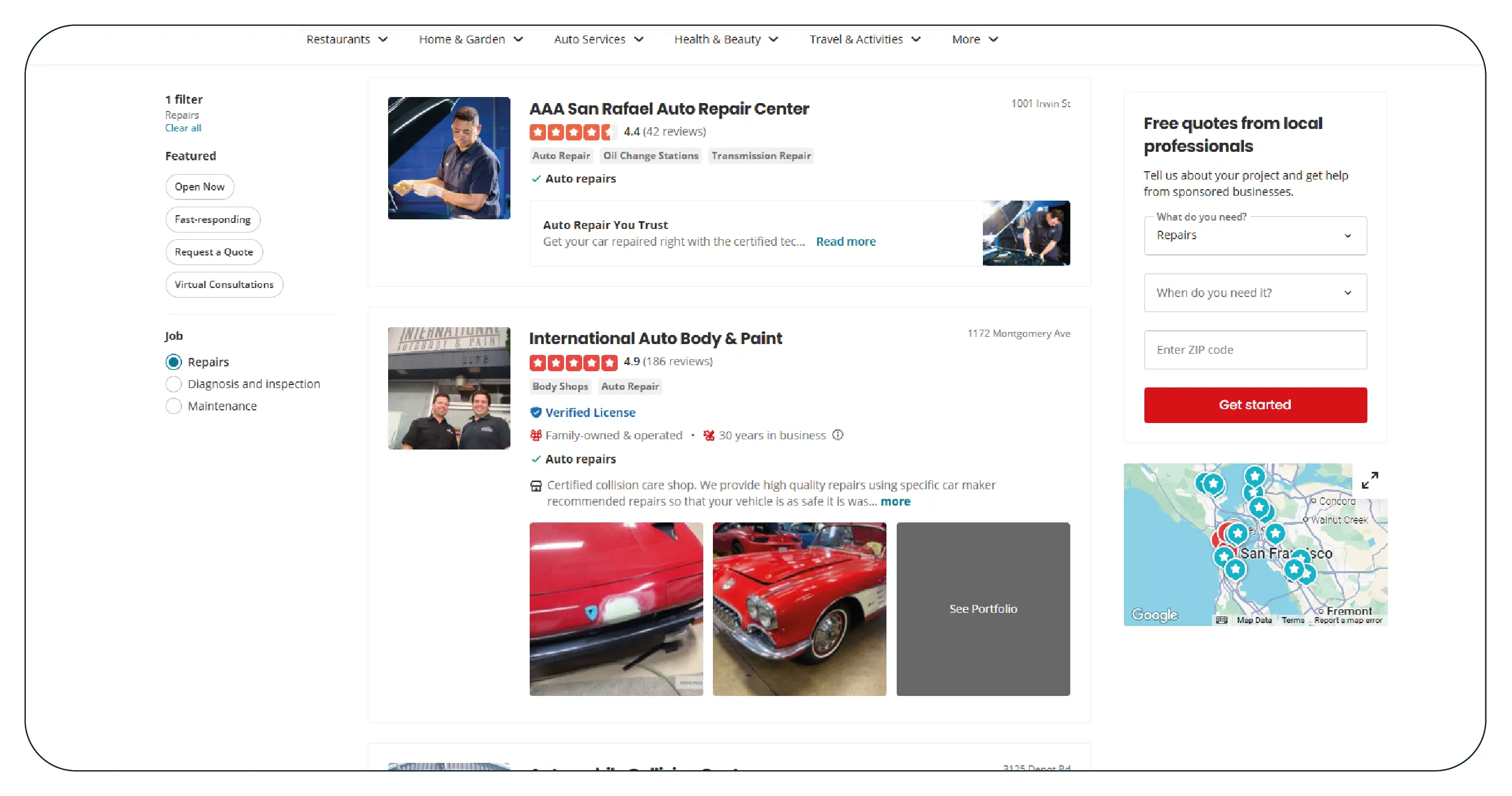
Achieve scalable and fast monitoring of Yelp reviews and competitor
performance.
Ensure high data accuracy for reliable insights.
Enable data-driven decisions for menu updates and promotions.
Deploy a system for scraping Yelp menu and dish details using Python.
Integrate data with internal analytics dashboards using Web Data Intelligence
API.
Automate extraction and analysis of customer reviews and ratings.
Reduce manual data collection by 90%.
Improve update frequency from weekly to real-time.
Achieve >95% accuracy in scraped reviews, ratings, and menu details.
Accelerate insight generation for marketing campaigns by 50%.
The Core Challenge
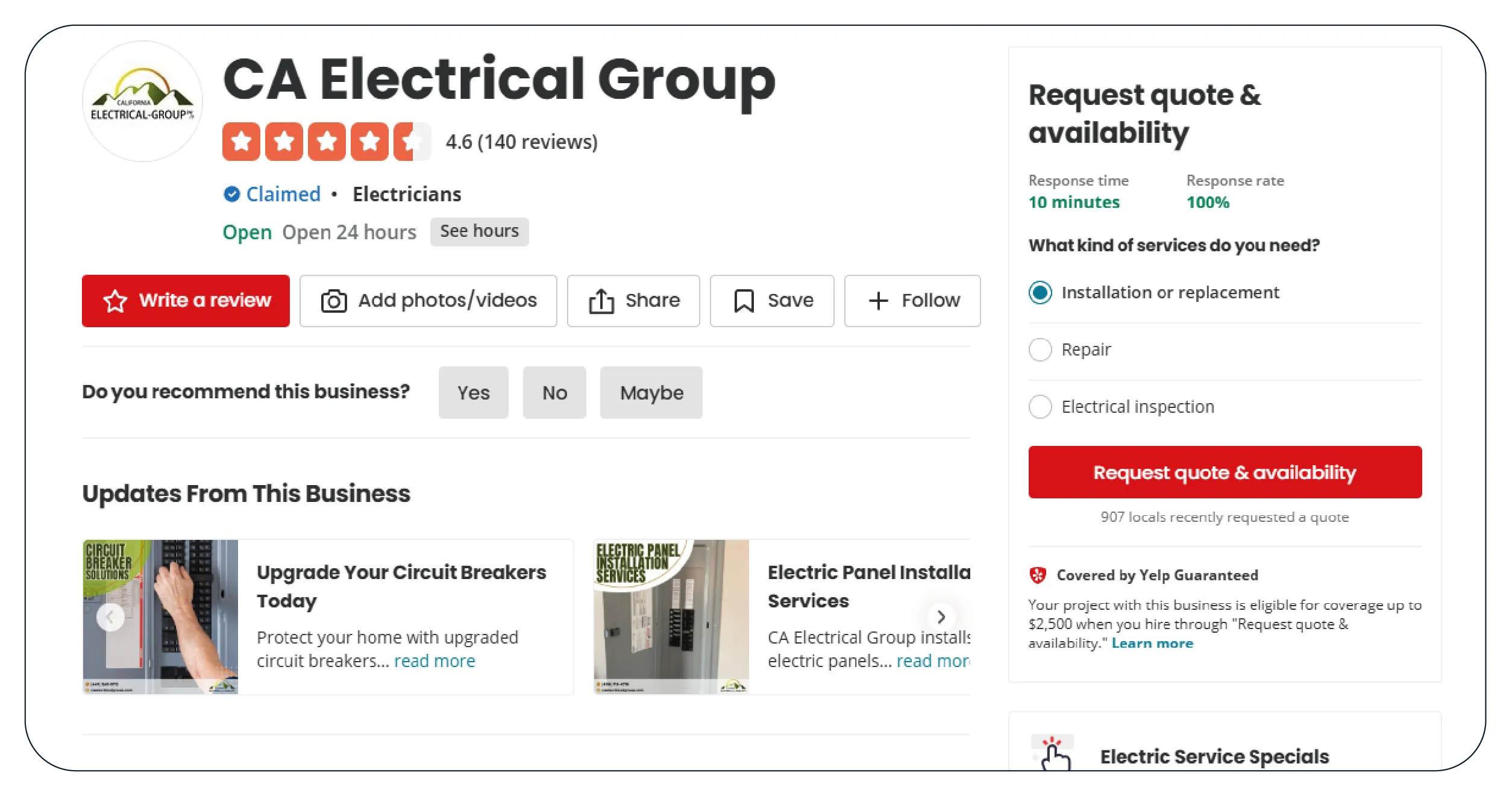
Prior to our solution, the client faced significant operational bottlenecks. Manual review
monitoring was time-consuming, inconsistent, and prone to human error. Tracking competitor
trends and menu changes was slow, limiting strategic decisions. The fragmented data approach led
to delays in responding to customer sentiment and identifying popular dishes.
Technical challenges included integrating multiple sources of Yelp data without violating site
policies and ensuring accuracy. The client required automated solutions capable of Yelp scraping
with API-like Python tools to gather reviews, ratings, and menu items efficiently. Without
automation, scaling insights across multiple locations and competitors was impossible, and
decisions relied on incomplete information.
Our Solution
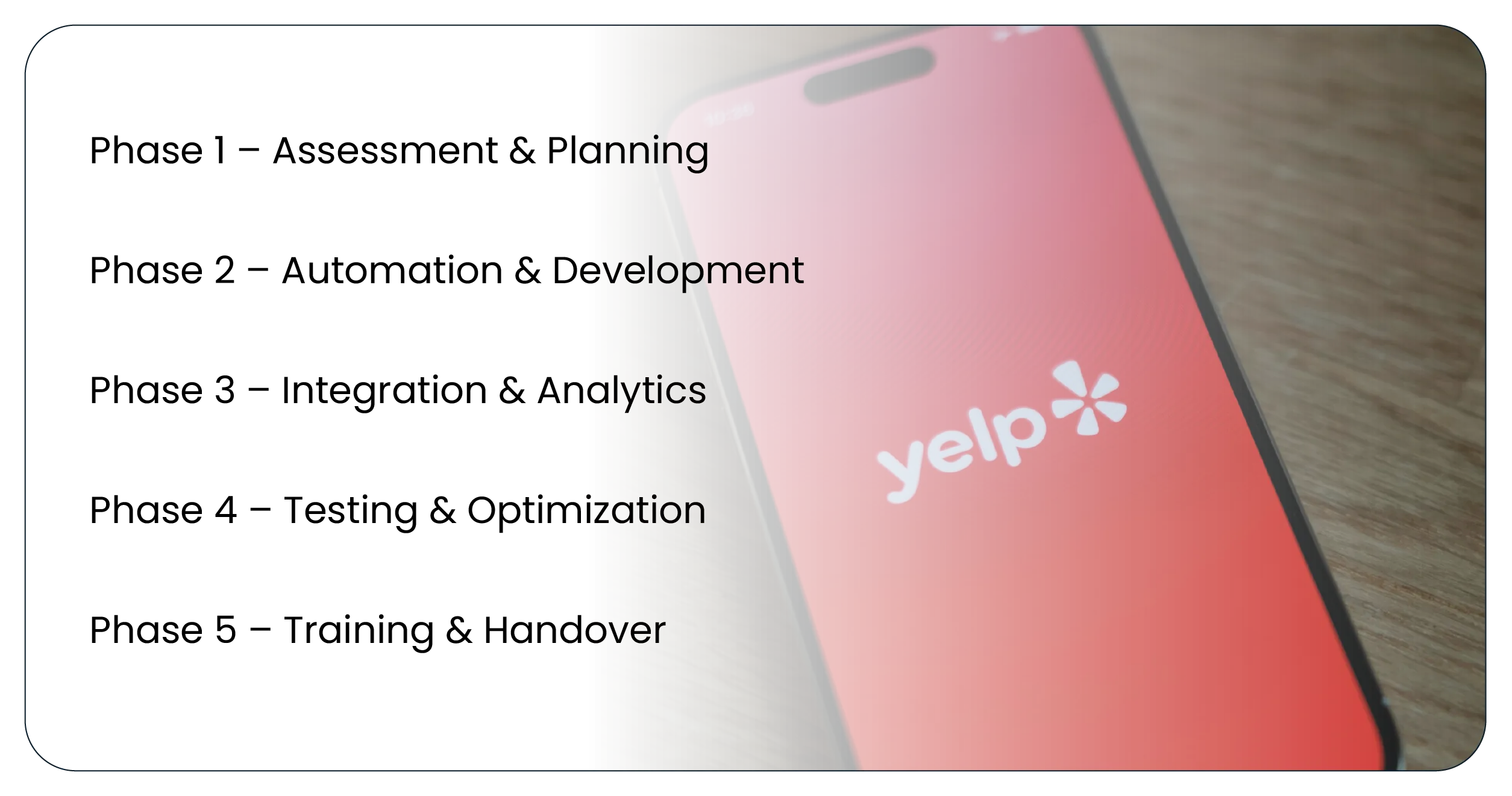
We implemented a phased approach to address these challenges:
Phase 1 – Assessment & Planning
We analyzed the client’s locations, competitors, and review patterns. Requirements were defined
to use Python scripts
to collect structured Yelp data while maintaining compliance with platform policies.
Phase 2 – Automation & Development
Custom Python scripts were deployed for scraping Yelp menu and dish details using Python. These
scripts extracted
reviews, ratings, business hours, and competitor information, storing them in a centralized
database.
Phase 3 – Integration & Analytics
Scraped data was integrated with dashboards for visualization. Alerts were configured to track
sudden changes in
ratings or review trends. By using scraped Yelp data for market insights, the client could
proactively adjust menus,
promotions, and marketing campaigns.
Phase 4 – Testing & Optimization
Continuous validation ensured accuracy and completeness. Scripts were optimized for efficiency,
allowing near
real-time updates without manual intervention.
Phase 5 – Training & Handover
The client’s team was trained to interpret analytics dashboards and run Python scripts
autonomously. The solution
eliminated manual bottlenecks and enabled scalable, data-driven operations.
Results & Key Metrics
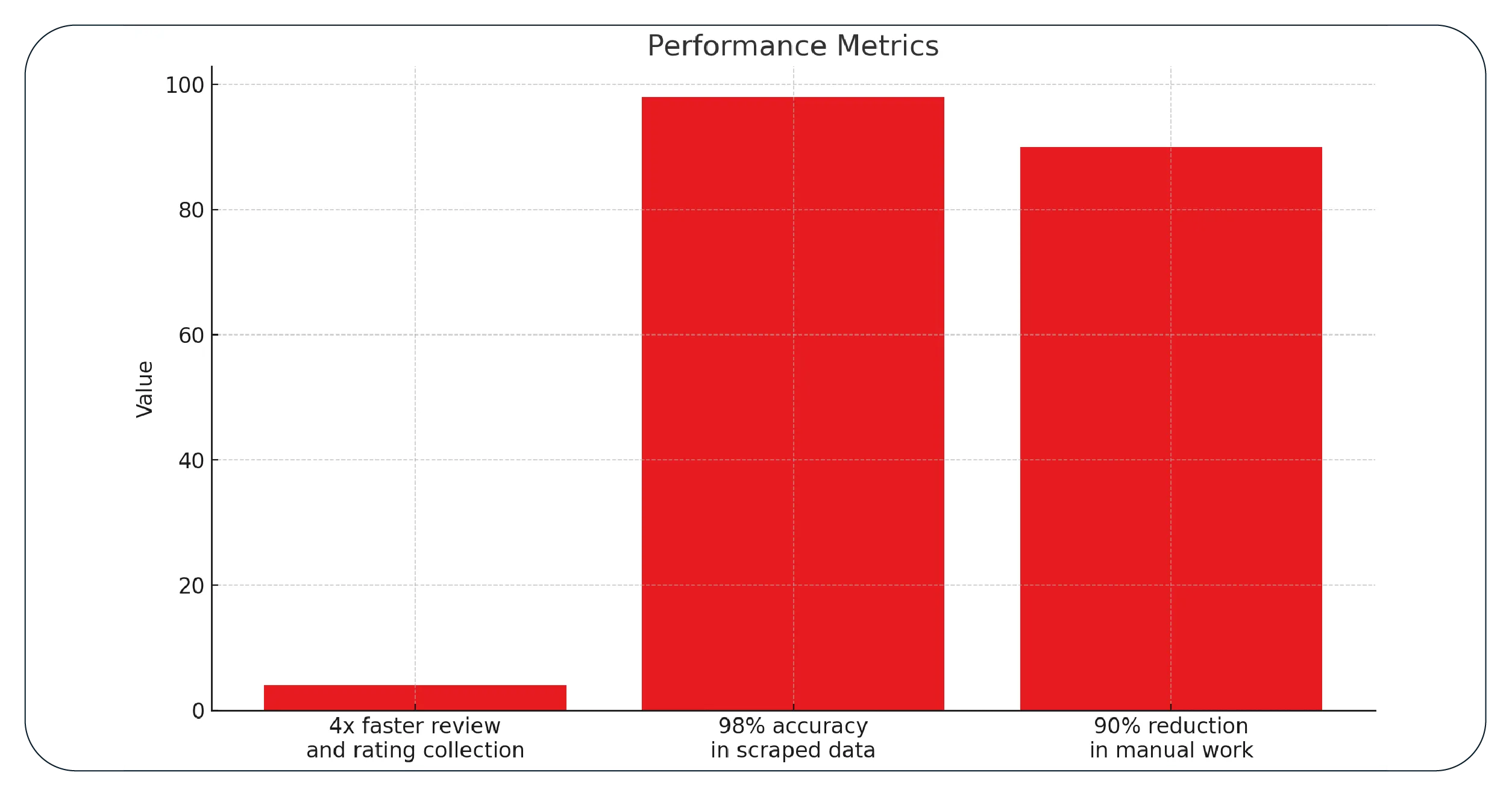
4x faster review and rating collection
98% accuracy in scraped data
90% reduction in manual work
Real-time tracking of competitor menus and reviews using extracting data
from websites automatically
Results Narrative
The client gained a holistic view of customer sentiment and competitor performance across
multiple locations. Rapid insights enabled faster menu optimization, targeted promotions, and
improved customer satisfaction. Manual errors were virtually eliminated, and reporting time
dropped from days to minutes. The automation allowed the client to scale operations efficiently
while maintaining high-quality insights, creating a sustainable competitive advantage.
What Made Product Data Scrape Different?
Our solution combined automation, compliance, and scalability. Using proprietary Python
frameworks, we enabled Python Web Scraping for Business Growth by collecting structured data
from Yelp without manual effort. Real-time dashboards allowed instant visualization of trends,
ratings, and competitor activity. Unlike traditional scraping methods, our approach maintained
high accuracy, was easily scalable across locations, and turned raw reviews into actionable
business intelligence. The combination of automation, analysis, and visualization helped the
client make faster, smarter decisions while minimizing operational overhead.
Client’s Testimonial
“Implementing Web Scraping in Python transformed how we monitor reviews and competitor
activity. We now receive structured insights from Yelp automatically, saving hours of manual
work every week. The solution is intuitive, reliable, and scalable across multiple
locations. Real-time dashboards allow us to track trends, adjust menus, and improve customer
satisfaction proactively. This automation has been a game-changer for our operations,
enabling smarter marketing decisions and faster responses to customer feedback.”
—Director of Operations, Gourmet Eats
Conclusion
Our case study demonstrates how restaurants can Scrape Multiple HTML Tables Using Python to gain
a competitive edge. With Yelp scraping made easy with Python automation, the client transformed
manual review monitoring into a scalable, accurate, and real-time process. They now have
actionable insights into customer sentiment, competitor menus, and market trends. Automation
eliminated bottlenecks, reduced errors, and accelerated decision-making. This solution provides
a roadmap for other local businesses to leverage Python-based scraping, enhance operational
efficiency, and grow strategically in a data-driven, competitive marketplace.
FAQs
Q1: What is Python scraping for Yelp?
It’s a method to automatically extract reviews, ratings, and business info from Yelp using
Python scripts.
Q2: Can I scrape menu and dish details?
Yes, our solution allows scraping Yelp menu and dish details using Python efficiently for
multiple locations.
Q3: Is manual intervention required?
Minimal. Automation ensures data collection is continuous and accurate.
Q4: Can this work with other websites?
Absolutely. Our solution supports extracting data from websites automatically while maintaining
structured datasets.
Q5: How does this benefit business decisions?
By leveraging Python scraping, businesses gain actionable insights into customer trends,
ratings, and competitor performance, enabling smarter strategies and faster responses.

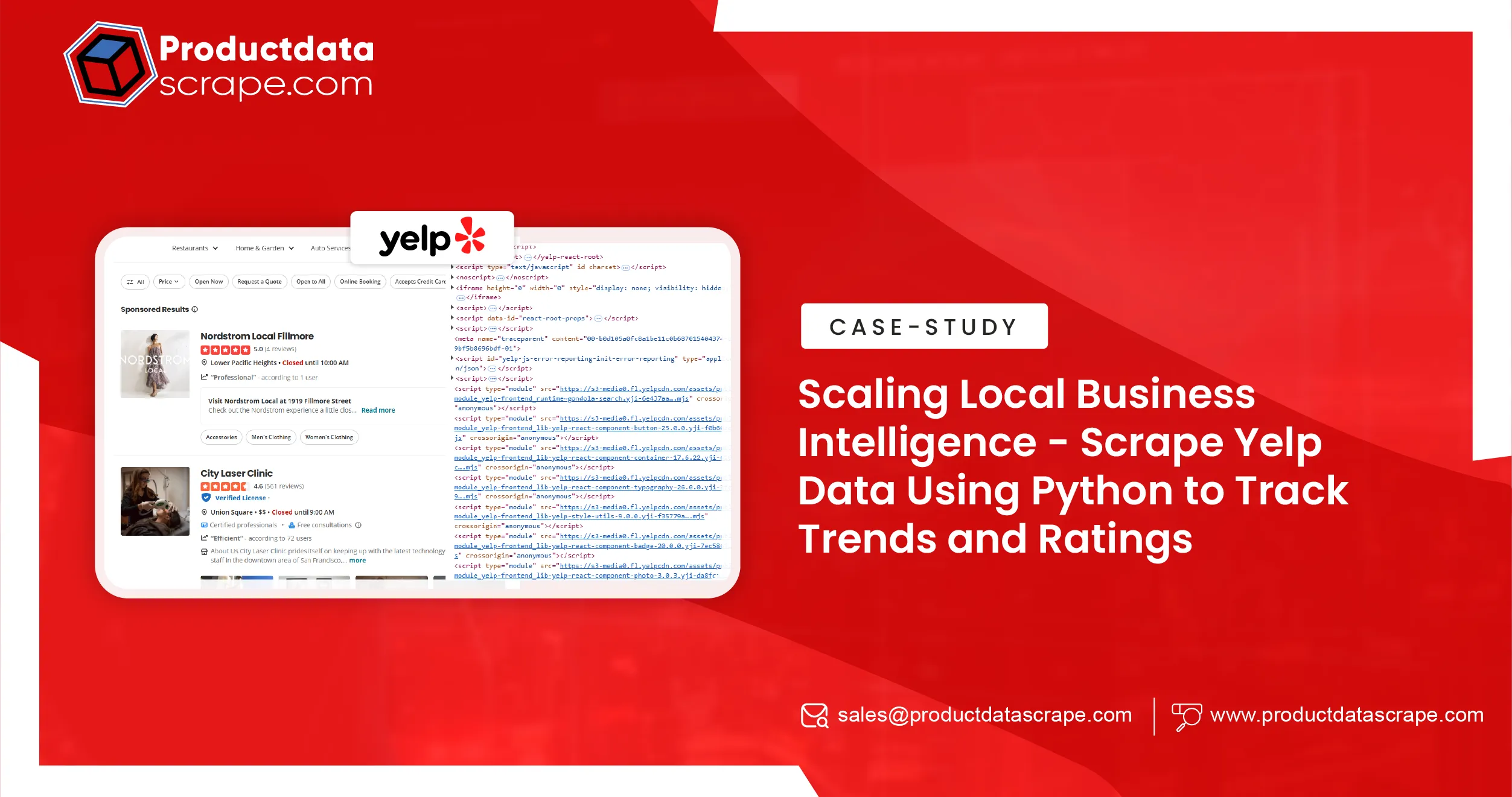



















.webp)




.webp)
.webp)
